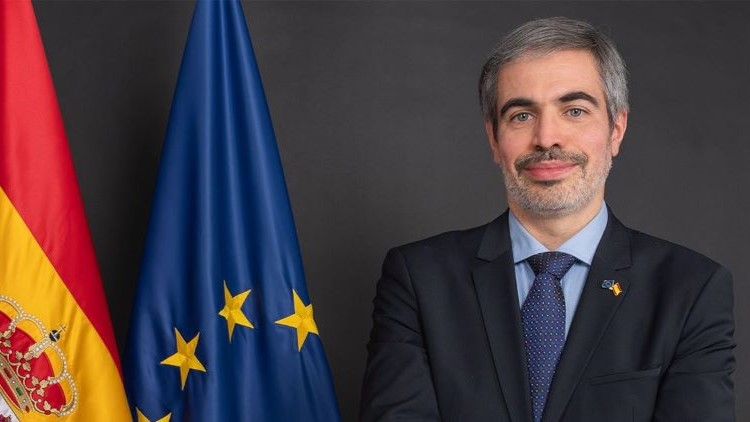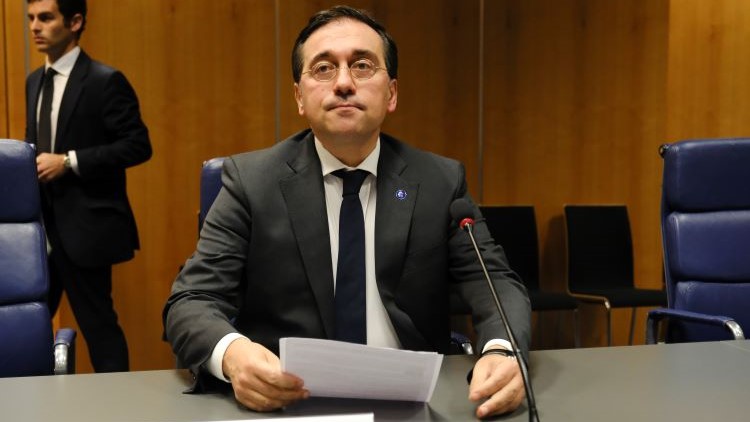Eduardo González
The Ministry of Foreign Affairs is going to grant a maximum of 600,000 euros to subsidize informative and communication activities related to the European Union, with special attention to democratic participation in the EU and the new institutional cycle that will begin after the European elections next year. month of June.
On March 5, the Official State Gazette (BOE) published the extract of a resolution of the State Secretary for the European Union – signed on February 27 by the State Secretary, Fernando Sampedro – announcing the call for the granting of subsidies corresponding to the year 2024 to finance communication actions and informative activities on matters related to the European Union.
In accordance with the resolution, priority will be given to those informative activities and communication actions related to democratic participation in the EU and the new institutional cycle, the future of the European Union, enlargement, economic, social and territorial cohesion, the new Migration and Asylum policy, the foreign relations of the European Union (with special attention to Latin America and the Caribbean, the Southern Neighborhood and Africa), the EU Strategic Agenda, social affairs, the internal market and the green, digital and social.
Recipients of subsidies from this call will be able to undertake events, online actions, dissemination activities and carry out reports, studies and educational initiatives that are related to any of the priorities.
The financing of the subsidies is set at a maximum total amount of 600,000 euros, distributed among all applicants who are beneficiaries. Any natural or legal person not belonging to the public sector and legally constituted who certifies that their activity is non-profit, in addition to compliance with tax and Social Security obligations, and who has the means and capacity may opt for this aid. to carry out activities and guarantee compliance with objectives.
“Among the priority objectives of the State Secretary for the European Union is the strengthening of the concept of European citizenship and bringing the European integration process closer to Spanish citizens to encourage their involvement and participation,” the resolution states.
“To achieve these goals, it is necessary to promote the dissemination of information related to European affairs among the different sectors of our society” and, in this context, “this call for grants aims to promote, within the framework of the Let’s Talk About Europe initiative of this State Secretariat, the carrying out of all types of communication actions and activities whose purpose is the dissemination of knowledge related to the operation, characteristics, future perspectives and any other aspect directly related to the European Union,” it adds.
In the call for the previous year, which was clearly marked by the Spanish Presidency of the Council of the EU (in the second half of 2023), the main beneficiary was the European Council of Foreign Relations Association (founded by Diego Hidalgo, Cristina Manzano and José Ignacio Torreblanca and who represents the important European think tank ECFR in Spain), who obtained 48,000 euros for an activity on “the Spanish Presidency as an opportunity to strengthen the EU as a geopolitical actor: the new relationship with Latin America and the internal market as central elements of its strategic autonomy.”
Next were the Foreign Policy Analysis Foundation, with 45,000 euros for an activity titled “Enlargement, more than a foreign policy for the European Union”; World Leadership Alliance Club of Madrid, with 43,200 euros to talk about “Spain as an engine of an expanded transatlantic relationship”; the Elcano Royal Institute, which obtained 38,400 to reflect on “Spain’s contribution to the European Union in its fifth presidency of the Council of the EU”; the ESADE Foundation, with 36,800 euros for an activity titled “Building Europe with Germany and France”; the Alternativas Foundation, with 33,600 euros to discuss “Spanish Presidency of the Council of the EU 2023: Spain, engine of progress for Europe”, and 23 other organizations, up to a total of 29, with a single grant for each one.







